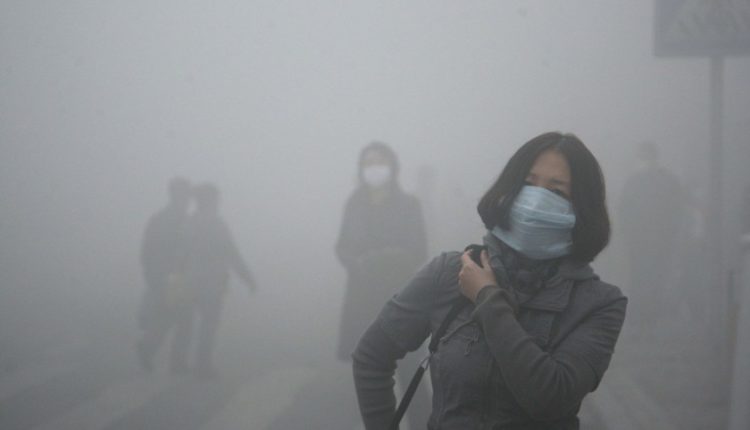Air pollution: Expats for ban on old vehicles; special budgetary provisions to check menace
NEW DELHI: Not so accustomed to air-pollution, many expatriates fell ill, canceled morning walks, stayed indoors and chose not to send their children to schools as Air Quality Index (AQI) shot up to an all-time high dangerous levels in Delhi and NCR towns in recent days.
The foreign diplomates posted in New Delhi are for the complete check on plying of old vehicles emitting dangerous smoke and suggested special budgetary provisions to check the menace.
Satoshi Suzuki, Ambassador-Designate of Japan to India, arrived in New Delhi and assumed his charge on November 1, at a time when air pollution was at its peak.
At certain locations like Vivek Vihar in New Delhi, the AQI level had crossed 1600 mark for PM2.5 which was 26 times higher than the recommended safe limit of 60.
On the day of Diwali, the AQI had touched 999, 16 times more than the safe limit.
This critical situation reportedly forced the Diplomatic Corps, the representative body of diplomats and missions of various countries in India to plan to hold a meeting with the Ministry of External Affairs to share health concerns of the foreigners posted in New Delhi as well as suggest ways and means to combat the menace.
The situation turned worse post-Diwali as thousands of tons of firecrackers were burnt and smoke added to the pollution level which was already high due to the burning of rice field stubbles by the farmers in neighboring states of Punjab and Haryana.
Kim Kum Pyuong, Director, Korean Culture Centre, New Delhi, who averages about 12,000 steps a day in the morning, said that he had to cancel his morning walk for a couple of days due to air pollution.
“At homes or workplaces, we added more air-purifiers devices to inhale clean air. One of our employees fell ill and had to take off for two days,” he said.
The American Embassy School that largely has children of foreign diplomats, has a very good air purifying system installed in its building as well as in its school buses and reduces the AQI level to less than 50.
Like many others, this school too witnessed a dip in the attendance of students during those days as parents didn’t want their wards to inhale poor quality air while even walking between home and school bus and before entering the school building.
Saki Trsuru, a Japanese national staying in Gurugram who has to venture out in the city out to source housemaids in the slum clusters for training them for her home services company, braved the bad air quality.
“I managed using an air purifier at home and use facemasks as I have no other option but to I go out for my work. Otherwise, it is very difficult to remain healthy and work,” she said.
The way forward:
Satoshi Suzuki, Ambassador-Designate of Japan to India landed in New Delhi on November 1 when air pollution was almost its peak.
“It is true that I experienced the pollution but the Indian government and state governments are now taking measures, and I hope this issue will be resolved in one way or the other. But I also know that it is a difficult issue to tackle,” Satoshi Suzuki told Asian Community News (ACN) Network recently.
Yoo Chang-ho, the Minister Counselor for Political Affairs, Embassy of the Republic of Korea said that most diplomats made sure that they had lots of air purifiers at their homes and offices.
“Usually, what is not emphasizes is those old vehicles are very severe and these should go off the roads. Whoever it is, whether BJP from the central government or the AAP, responsible for the pollution, the priority of budgets should be used to address the issue of air pollution. If you have money to allow women free tickets in buses, then please get rid of old buses instead and do something for the clean air,” suggested the minister, adding that the governments should have special budgetary provisions with the highest priority on air pollution check.
A word of caution too:
Yoo Chang-ho said that it was because of the bad air quality, the diplomats preferred to stay away from being posted in India.
“Even from Korea, when diplomats are asked to come to India to work, they prefer not to come because of the foul air and pollution. They like the fact that India is such an important country, but when they hear about the pollution they change their minds and don’t want to come to India. So if India wants more people and investment to come to India, it needs to clean its air,” he added.


